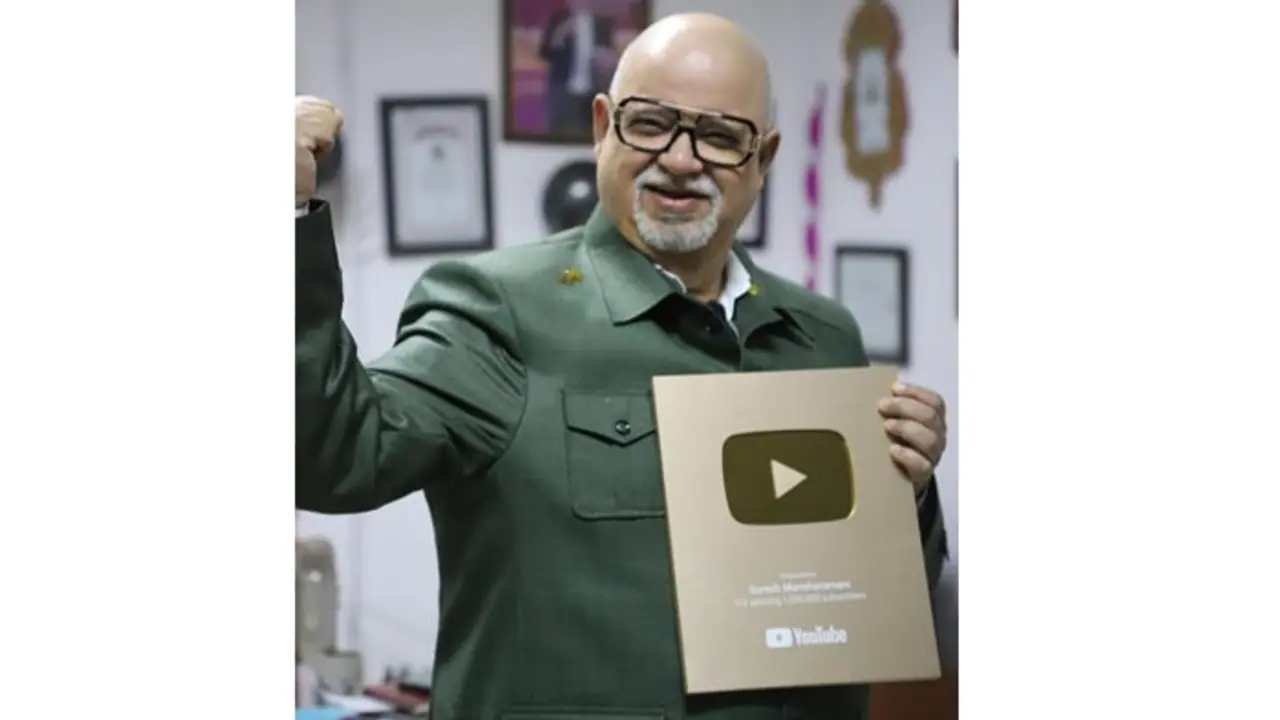In a recent conversation, Mr. Mansharamani explained, “Entrepreneurs often chase product-market fit, funding, and growth metrics.
In a nation where more than 80% of startups fail within the first five years, one might think that the main causes are a lack of capital, inadequate planning, or intense competition. However, the real cause, according to Mr. Suresh Mansharamani, who is widely recognized as India's best business coach, is not spreadsheets or strategies but rather empathy, a soft skill that is so underutilized that it is rarely mentioned in business plans.

Yes, empathy. Not charisma, not negotiation, not even leadership in the traditional sense. Empathy, Mr. Mansharamani considers it the foundation upon which sustainable businesses are built.
Mr. Suresh Mansharamani, who holds the distinction of being a certified OKR coach and has over 45 years of experience in the business world, has coached thousands of entrepreneurs throughout India. His advice has changed perspectives, expanded operations, and—above all—instilled a people-first leadership style in solopreneurs, startup founders, and SME owners.
His coaching philosophy is based on empathy, which is the capacity to comprehend, relate to, and react to the feelings of others, whether they be partners, clients, or coworkers.
In a recent conversation, Mr. Mansharamani explained, “Entrepreneurs often chase product-market fit, funding, and growth metrics. But they forget that at every step of the journey, they are dealing with people. Understanding what drives your customers, what motivates your team, and what concerns your investors can only come from deep empathy. Without it, even the best ideas collapse under poor communication and fractured relationships.”
Theory is not the only source of this insight. A living example of the effectiveness of empathy in action is Mr. Mansharamani's journey from a middle-class upbringing to founding and growing a publicly traded company. He remembers how he was able to create business that actually solved problems by paying close attention to his customers' words as well as their unsaid frustrations. In a similar vein, his compassionate management style fostered a culture of loyalty, creativity, and shared ownership within the organization—elements that are frequently overlooked in demanding entrepreneurial settings.
However, how does one cultivate empathy in a data-driven, fast-paced business environment?
Mr. Mansharamani breaks it down into three actionable habits:
1.Active Listening: Most business owners listen to respond, not to comprehend. Before speaking, the top business coach in India advises founders to take a moment to think, absorb, and reflect. Active listening reveals deeper truths that data frequently conceals, whether it's a customer complaint or team feedback.
2.Perspective Shifting: Empathy involves stepping into others’ shoes. For entrepreneurs, that means seeing the business from the lens of the customer, the employee, or even the investor. “When you think like your customer, innovation becomes natural,” he emphasizes.
3.Compassionate Communication: Delivery matters as much as the message. Empathetic communication strengthens trust, builds rapport, and defuses conflict. In Mansharamani’s coaching sessions, communication is treated as a strategic business tool—not just a soft skill.
This unique emphasis on empathy is why entrepreneurs across the country seek his mentorship. Under his guidance, many have reported not just revenue growth, but significant improvements in employee retention, customer satisfaction, and even mental well-being.
As India positions itself as a global startup hub, with unicorns emerging from every corner, soft skills will increasingly determine long-term success. Empathy, in particular, could be the differentiator between a one-time founder and a lasting leader.
"A business that understands people will always outperform a business that only understands numbers," Mr. Mansharamani stated. Because there is a human story behind every number.
It might be time to look beyond hard skills for entrepreneurs who are prepared to lead with impact, grow with purpose, and create companies that thrive on both hustle and heart. And maybe, as the best business mentor in India demonstrates, the first step to success is just listening—with empathy and depth.


